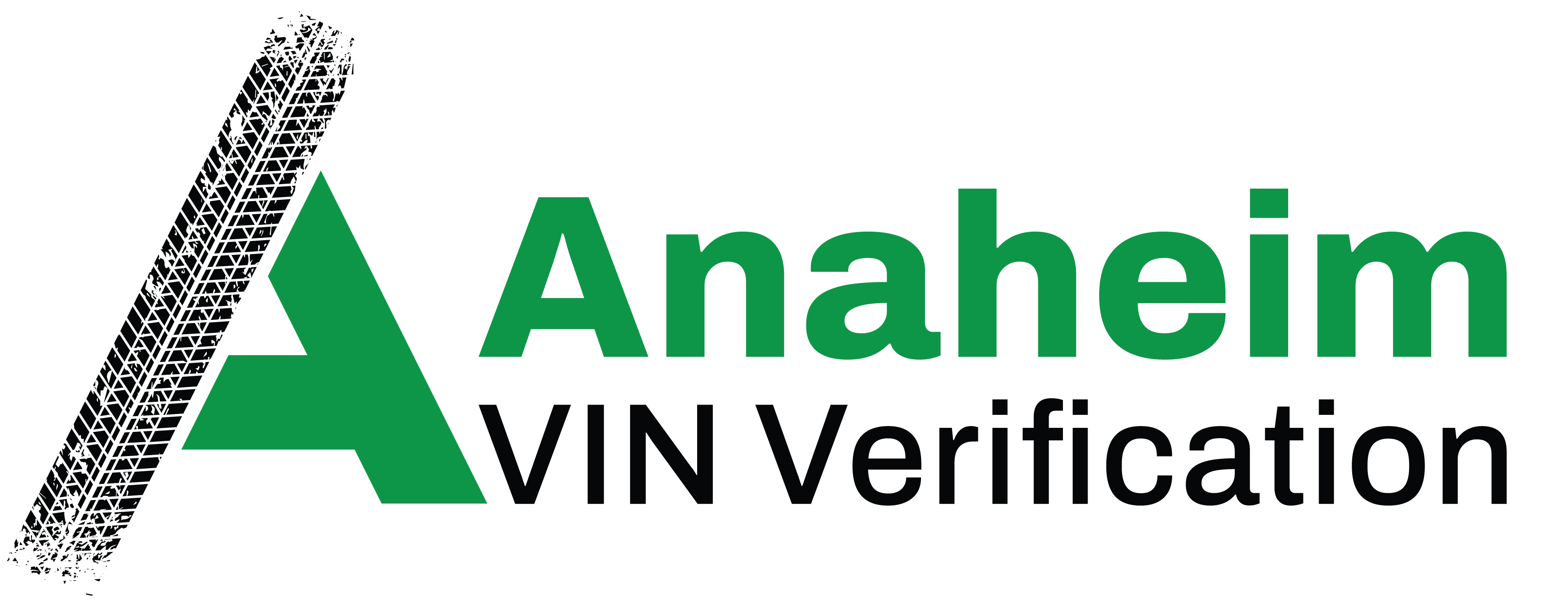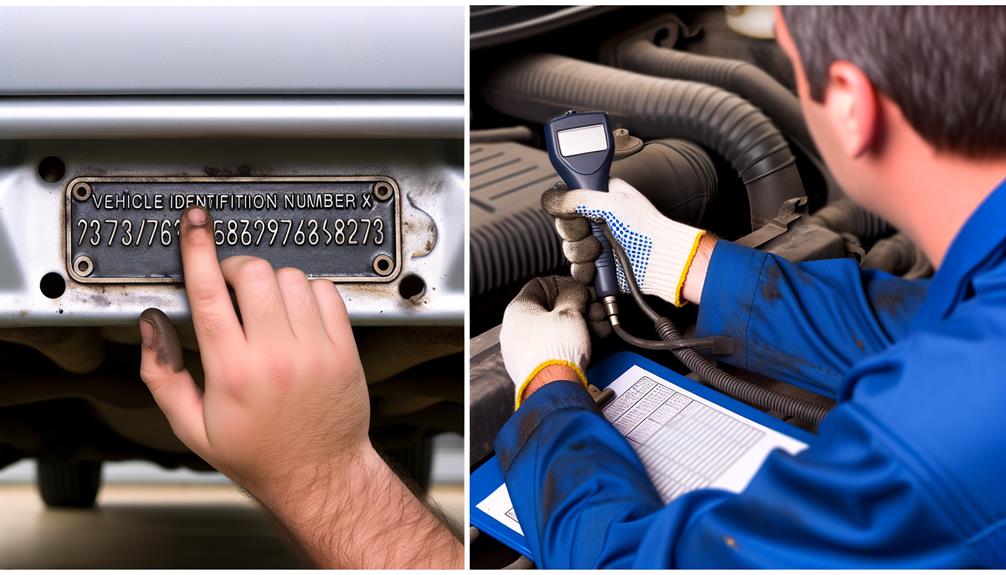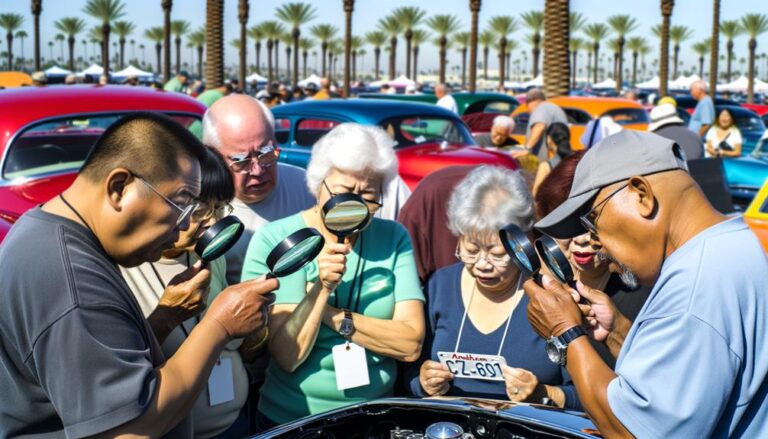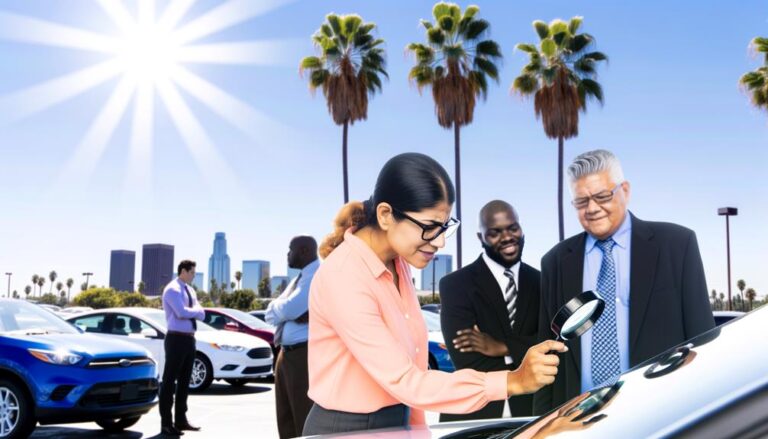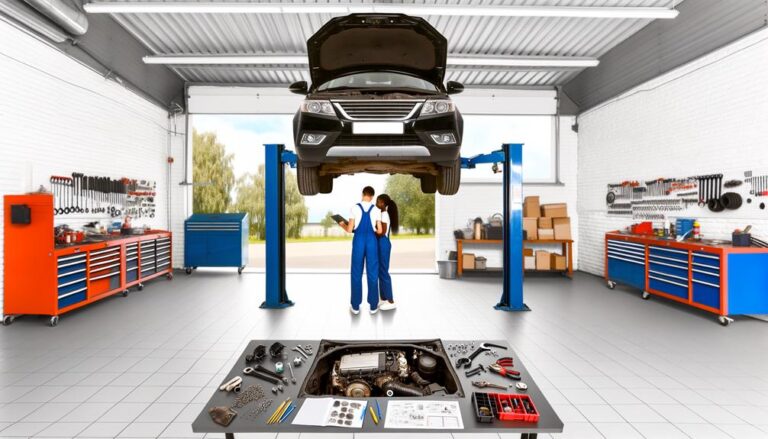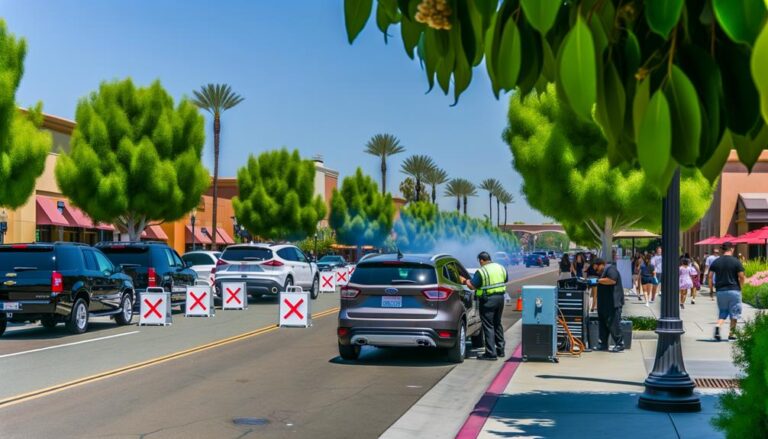The Difference Between VIN Verification and a Smog Check in Anaheim
When you're navigating vehicle regulations in Anaheim, you might confuse VIN verification with a smog check, but they serve very different purposes. You need a VIN verification to confirm your vehicle's identity, especially if it's from out of state, ensuring its details match the official records. Meanwhile, a smog check, which you'll undergo every two years, assesses your vehicle's emissions to meet California's stringent environmental standards. Understanding the specific requirements and implications of each can save you time and hassle. So, what happens if your vehicle fails one but passes the other? Let's explore how these processes impact your vehicle's compliance.
Understanding VIN Verification
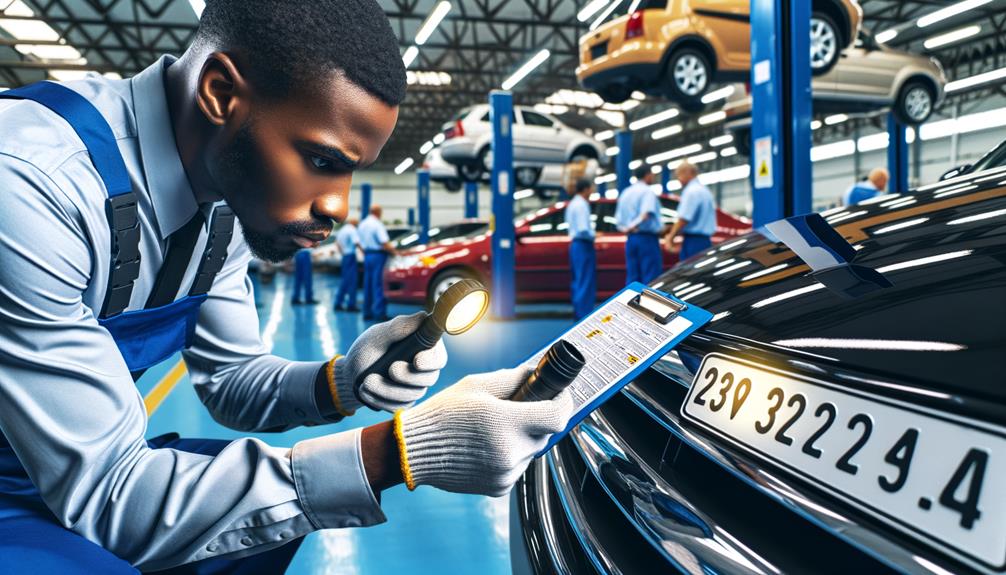
VIN verification is a required inspection for out-of-state vehicles to ensure the Vehicle Identification Number matches official documents and is unique. As someone seeking freedom in California, you'll appreciate knowing this DMV-required process is straightforward and designed to protect your vehicle's identity.
During the inspection, detailed checks are performed on your vehicle's year, make, model, and VIN placement, ensuring everything aligns with the title and supporting documents.
It's crucial to complete this step on the REG31 form, which is your ticket to registering your vehicle with the California DMV. You won't need to worry about VIN verification for revived salvage vehicles or those lacking necessary paperwork; however, all other vehicles must pass this scrutiny.
Conveniently, California offers multiple ways to get this done. You can choose from DMV offices, CHP offices, AAA if you're a member, or even mobile services that come to you. This flexibility helps you maintain your freedom and manage your time efficiently.
Smog Check Essentials
While VIN verification ensures your vehicle's identity is legitimate, a smog check confirms it meets California's strict emission standards.
As a vehicle owner in California, you're playing a crucial role in enhancing air quality and public health. Smog check essentials aren't just about compliance; they're about taking responsibility for the environmental impact of your vehicle.
Smog checks in California are a key part of emissions testing. Every two years, or during registration renewal, you might get a notice from the DMV requiring your vehicle to undergo this process. It's essential not just for keeping your car legally on the road but for ensuring you're not contributing excess smog-forming pollutants into the atmosphere.
This testing typically involves a visual inspection and an OBD connection for newer models post-1999, which streamlines the process.
VIN Vs. Smog Objectives
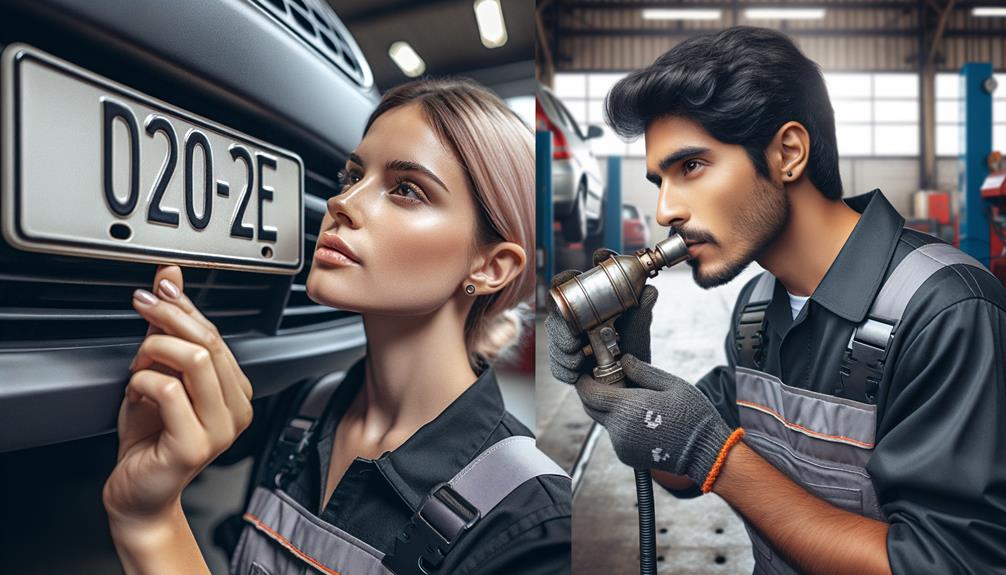
Understanding the differences between VIN verification and smog checks is crucial, as each serves a distinct purpose in maintaining vehicle legality and environmental health.
VIN verification ensures the integrity of your vehicle's identity. It's about confirming that the vehicle identification number (VIN) on your car matches the details on record. This process helps prevent fraud and theft, giving you peace of mind that your vehicle is rightfully yours. It's especially vital when you're bringing in out-of-state vehicles, ensuring they comply with local compliance regulations.
On the other hand, a smog check focuses squarely on the environmental impact of your vehicle. It assesses whether your car meets emissions standards, crucial in combating air pollution. This isn't just about following rules—it's about contributing to a healthier community. The smog check involves both a visual inspection of your exhaust system and electronic diagnostics to measure emissions accurately.
Each process, from the physical inspection documented on the REG31 form in VIN verification to the rigorous emissions testing in smog checks, plays a critical role. While VIN verification secures your vehicle's legality, smog checks safeguard the air you breathe, ensuring both personal and environmental safety.
Inspection Locations
You'll find a range of options for conducting VIN verifications and smog checks across Anaheim, each tailored to meet specific needs and circumstances.
If you're seeking convenience, consider mobile VIN verification services. Though they come with a fee, ranging from $67 to $147, they offer the freedom to choose your location, making this option ideal if you're pressed for time or prefer the comfort of your own space.
For VIN verification without a fee, head to DMV or CHP offices. These require you to bring proper documentation, so make sure you're prepared. The DMV is a one-stop-shop for most vehicle registration needs, while CHP offices focus on special cases, ensuring vehicles aren't pieced together from stolen parts.
When it's time for a smog check, you'll need to visit one of Anaheim's licensed smog check stations. These are separate from the places you'd go for VIN verification. Stations vary from test-only to test-and-repair or repair-only, depending on what your vehicle may require.
Each of these inspection locations plays a crucial role in keeping your vehicle legally on the road. Choose the one that best fits your needs, ensuring your vehicle meets all necessary regulations with minimal hassle.
Process and Procedures
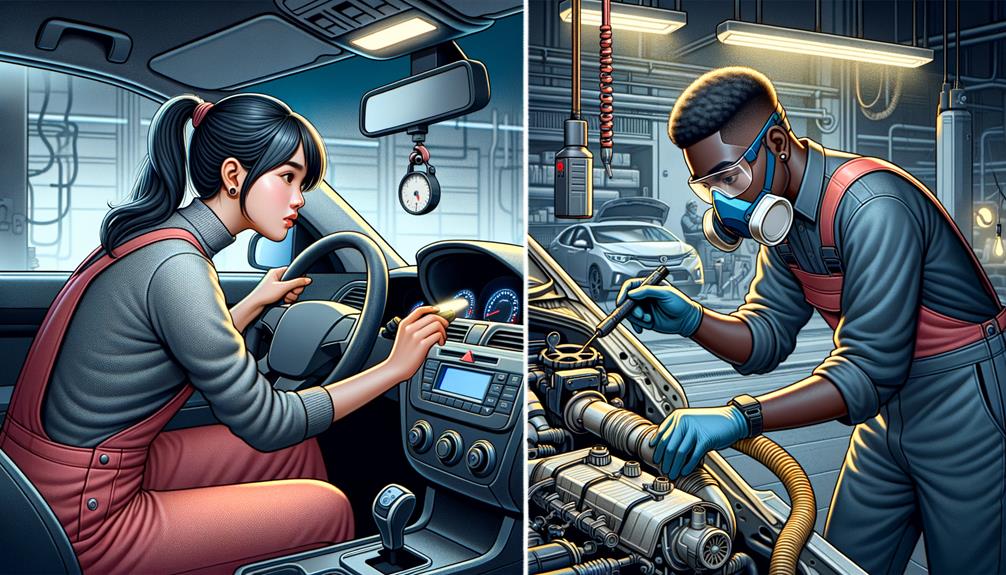
To ensure your vehicle meets California's legal requirements, familiarize yourself with the specific processes for VIN verification and smog checks.
VIN verification is straightforward: you'll present your vehicle, and a certified inspector will check the vehicle identification number against your title and other documents. This is crucial for out-of-state vehicles entering the registration process in California. The inspector fills out a REG31 form, noting your vehicle's make, model, year, and odometer reading, ensuring all details match and helping in fraud prevention.
On the other hand, a smog check ensures your vehicle isn't contributing excessively to air pollution. You'll need to drive your car to warm up the engine and reset emission sensors for accurate results. The procedure includes a visual inspection of the exhaust system and an OBD connection to measure emissions compliance. This is particularly vital for maintaining the freedom to drive your vehicle without environmental restrictions.
Both inspection procedures are essential to uphold the quality and integrity of vehicle registration in California. By adhering to these steps, you're not just following the law, but also contributing to a healthier, fraud-free community.
Compliance and Regulations
Both VIN verifications and smog checks are crucial, as they ensure your vehicle adheres to California's stringent legal and environmental regulations.
When you're aiming to register your out-of-state vehicle in California, VIN verification plays a pivotal role. It confirms your vehicle's identity, matching the VIN with the title and documents. This step is vital for fraud prevention and ensuring that all vehicle details are accurately recorded.
On the other hand, a smog check ensures your vehicle meets California's rigorous emissions standards. It's not just about following the rules; it's about contributing to cleaner air and a healthier environment. When renewing your registration or transferring a vehicle, this check evaluates your vehicle's exhaust emissions and onboard diagnostics, ensuring compliance with the state's environmental protection goals.
Both processes are essential for maintaining the integrity and safety of vehicle registration within the state. They address different aspects of your vehicle's impact — from regulatory compliance to environmental responsibility.
Costs and Considerations
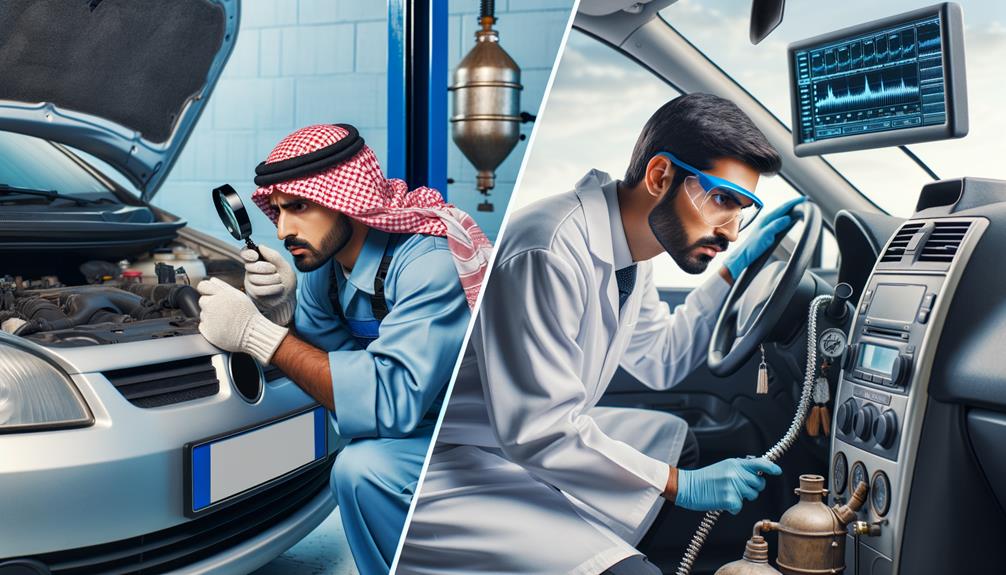
Understanding the costs associated with VIN verification and smog checks is crucial when preparing to register or renew your vehicle in California.
VIN verification, performed to confirm your vehicle's identity and documentation, can vary in cost. You might pay between $35 for a basic service and up to $147 for mobile convenience. However, DMV and CHP offer this service for free, providing you a chance to save money if you're flexible with time and location.
On the other hand, a smog check, which assesses your vehicle's emissions and environmental compliance, typically costs more and depends on your vehicle type and condition. This mandatory test, required every two years for older vehicles, ensures that your car meets the state's stringent emissions standards.
Both processes involve specific procedures: VIN verification requires a physical inspection and is documented on a REG31 form, while smog checks include visual inspections and OBD system checks.
Remember, certain vehicle types, like revived salvage vehicles, might complicate or exempt you from these processes.
Navigating these requirements efficiently means understanding what's expected for your specific vehicle type, potentially saving you both time and money. Choose wisely where and how you fulfill these obligations to keep your journey toward vehicle registration as smooth as possible.
Frequently Asked Questions
How Much Does a VIN Verification Cost in California?
You'll find that a VIN verification in California typically costs between $35 and $75 at designated locations. If you're a AAA member, you can even get it for free, minus the mobile service.
What Do They Check for VIN Verification in California?
For VIN verification in California, they check your vehicle's year, make, model, VIN's location, wheel count, axles, license plate, fuel type, odometer reading, and the status of the federal certification label.
What Is a VIN Verification?
A VIN verification ensures your vehicle's identity matches its documents, crucial for registration in California. It checks the VIN, make, model, and more, offering peace of mind against theft and fraud.
Do I Need a Smog Check Before I Register My Car in California?
Yes, you'll likely need a smog check before you can register your car in California, unless it's less than six years old or is a hybrid or electric vehicle.
